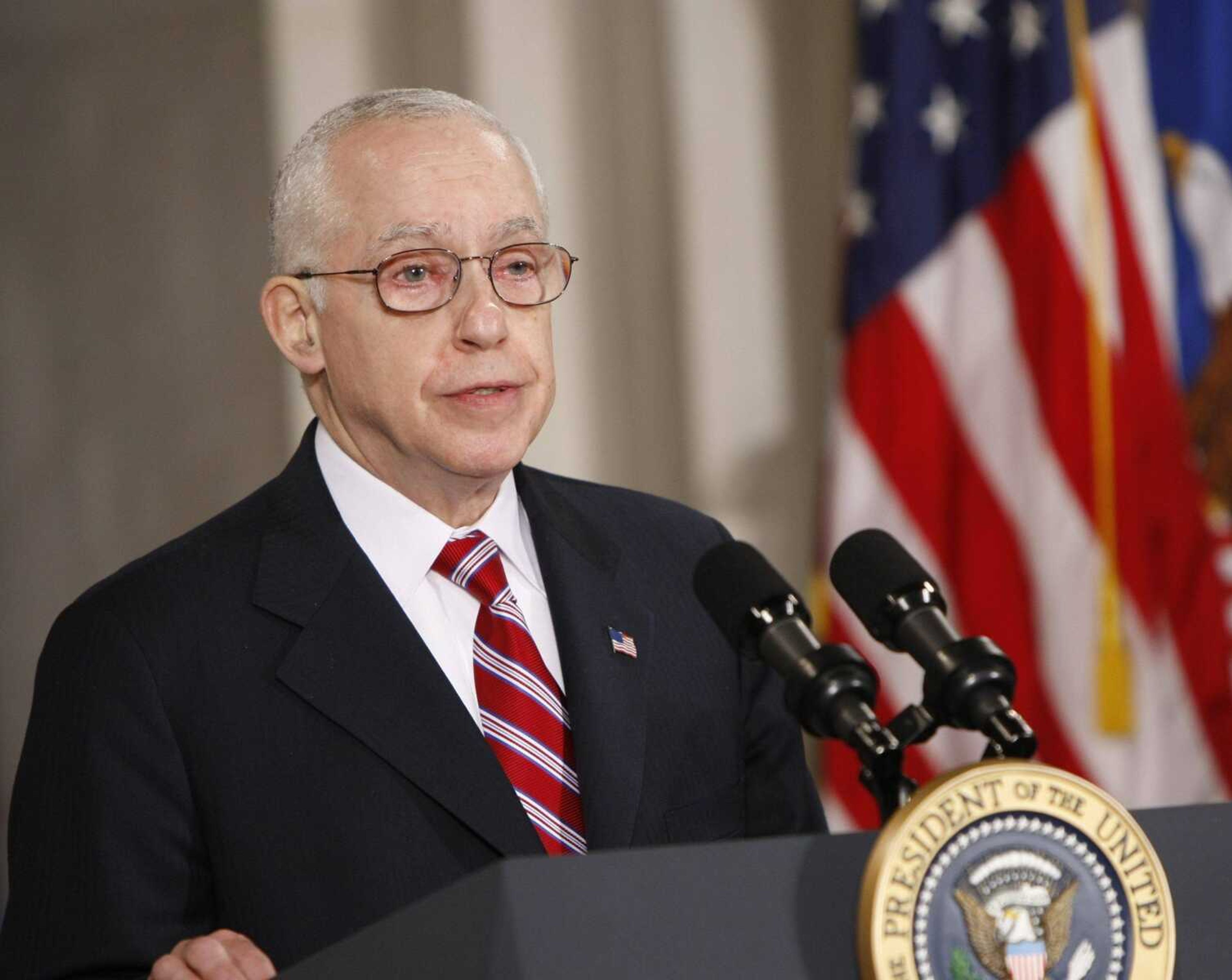Democrats seeking Bush's impeachment settle for contempt citations for aids
WASHINGTON -- House Democrats really didn't expect the Justice Department to present their contempt citations against two of President Bush's top aides to a federal grand jury for prosecution. But the effort and having a civil lawsuit at the ready as a backup in their fight against the White House over the 2006 firings of nine federal prosecutors has satisfied, for now, some liberals who for a year have wanted much more: Bush's impeachment...
WASHINGTON -- House Democrats really didn't expect the Justice Department to present their contempt citations against two of President Bush's top aides to a federal grand jury for prosecution.
But the effort and having a civil lawsuit at the ready as a backup in their fight against the White House over the 2006 firings of nine federal prosecutors has satisfied, for now, some liberals who for a year have wanted much more: Bush's impeachment.
Even before House Speaker Nancy Pelosi became the first woman to reach Congress' highest office, the California Democrat had rejected demands from many in her party for impeachment.
Until two weeks ago, she had sat for seven months on the contempt citations sought by Democrats on the House Judiciary Committee against Bush's chief of staff, Josh Bolten, and his former counsel, Harriet Miers.
"We have pushed and pushed for the contempt citation and for enforcement of that citation. The speaker has responded fully. She deserves credit for that," said one of those Democrats, Florida Rep. Robert Wexler.
Is Pelosi's ultimatum a suitable replacement for the impeachment proceedings that Wexler and 18 other Democrats demanded in a December letter?
"It is not a replacement. It's not a substitute," Wexler said. "We need to answer the question where are the Democrats? Where is the backbone? The speaker has begun to answer that question."
Pelosi's ultimatum is the closest that the pro-impeachment Democrats are going to get to full-blown congressional proceedings to remove Bush from office, barring some unforeseen scandal.
The House committee early last year subpoenaed Bolten for documents and Miers for testimony in trying to make a case that the White House directed the firing of nine U.S. attorneys because they were not supportive enough of Republicans' political agenda.
Bolten and Miers refused to comply with the subpoenas at the direction of White House counsel Fred Fielding. On Bush's behalf, Fielding said such information is private and covered by executive privilege. Attorney General Michael Mukasey and his predecessor, Alberto Gonzales, both told Congress they would not refer a contempt citation to a prosecutor if the subjects were acting as directed under executive privilege.
Democrats reject that reasoning on several grounds, taking issue with the administration's concept of what's covered by the privilege.
"This isn't about Democrats or Republicans," Pelosi said in her remarks last month just before the citations passed the House by a 223-32 vote that most Republicans boycotted. "This Congress and future Congresses must have the ability to conduct meaningful oversight."
On Friday, Mukasey said he would not refer the citations to a grand jury and that neither Bolten nor Miers had committed a crime. Pelosi then announced that she has given the Judiciary Committee authority to sue Bolten and Miers in federal court.
The reasons for the Democrats' two-pronged approach were about much more than the balance of power. They were unmistakably political, a point the White House highlighted in its response.
Democrats did not even spend much energy denying it.
Democratic aides involved in the progression of the contempt citation acknowledged its political benefits, notably cheering up a base demoralized by Pelosi's inability to get the caucus to force Bush to begin withdrawing troops from Iraq.
Others wasted no words when asked for more reasons why Pelosi had bothered to poke at the administration in the twilight of Bush's final term.
"Because they'd have done it to us in a second" if a Democratic president had made the same choices, said Dane Strother, a Democratic strategist working on several congressional campaigns.
He and other Democrats said they were not hearing constituents outside the Beltway comment one way or another on the contempt citations specifically.
Rather, Wexler said, people ask questions about why Democrats have been unable to force changes in policy on Iraq, on children's health care and immigration. He said Democrats need to make the case they are pushing back by challenging Bush more on his use of warrantless wiretaps and claims of executive power to ignore Congress.
Pelosi, he said, "has successfully begun establishing that Democrats have a backbone and that Democrats can be bold in standing up to the president. That's critically important both substantively but also for political purposes."
Connect with the Southeast Missourian Newsroom:
For corrections to this story or other insights for the editor, click here. To submit a letter to the editor, click here. To learn about the Southeast Missourian’s AI Policy, click here.








